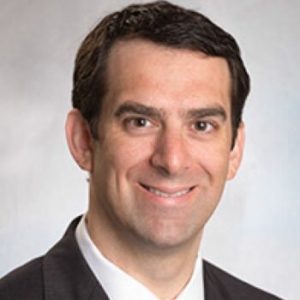
Explore This Issue
ACEP Now: Vol 33 – No 08 – August 2014Last month, I attended the Aspen Ideas Festival at the Aspen Institute (@aspenideas) in Colorado for its first-ever Spolight: Health session. This was a three-day event, that brought together leaders in health care for discussion-based seminars and interviews. Additionally, 100 scholars were invited. As a member of this group of younger professionals and students, my only responsibility was to listen and learn. Naturally, I found this next to impossible, and I was able to ask questions of several experts who know a thing or two about American health care. As usual, I did a fair amount of live-tweeting from this event. I also added to my Twitter feed a handful of accounts that have very little overlap with my normal list and the world of #FOAMed and medical education. These accounts highlight some individuals and organizations that are focused on big-picture health care topics. Follow them if you’re interested in health care policy or want to start keeping up. Alternatively, you can simply conduct a search for the topic(s) you are interested in. Try searching #ACA or #Medicare for articles about the Affordable Care Act. One of the pros (and cons) of Twitter’s search function is that it tends to curate its searches of high-volume hashtags. This feature is particularly appreciated when searching for gems among the legions of tweets with popular hashtags such as #ACA or #Medicare. On the other hand, the main con with curation is that you can’t always find a tweet that you once saw. Sometimes you have to dig to find a particular tweet. Another con is that you can’t cross search tweets (say, by searching for #ACA and #Obamacare).
In the spirit of Aspen, I’d like to start by sharing three thought-provoking tweets that appeared in my feed.
1 The first is from Atul Grover, MD, PhD (@AtulGroverMD), chief public policy officer of the Association of American Medical Colleges. At the festival, Dr. Grover tweeted a question for Princeton economist and health care expert Uwe E. Reinhardt: “How much should you ask taxpayers to pay to save a year of life for someone they don’t know? #AspenIdeas.” It’s a simple question that nobody seems to want to answer despite the fact that how much taxpayers are already spending to save one life has recently been estimated. Summarizing recent data, Forbes.com health blogger Michael Cannon reports that the rollout of RomneyCare in Massachusetts had a number needed to treat of 830 to save one life; that is, 830 people had to enroll in a new insurance plan to save the life of one person age 20–64. Using an average premium of $5,000 per person, Cannon estimates that Massachusetts taxpayers paid around $4 million per life saved. The question Dr. Grover asked Mr. Reinhardt was, therefore, startlingly basic: can we save lives for less, and can we afford to save them for so much more?
2 Anne F. Weiss (@annefweiss), a director at the Robert Wood Johnson Foundation, tweeted an interesting idea from WebMD founder Jeff Arnold. Mr. Arnold proposes that we “look outside health tech for what attracts and engages users. Imagine making a doc appointment on OpenTable! #AspenIdeas.” Convenience is indeed crucial for patients when choosing among qualified specialists. Apps like this could easily limit these searches to availability among specialists who accept a patient’s particular health care plan. This idea is so simple that I can’t imagine it not being part of business as usual within a few years, but remember, you heard it here first.
3 I attended a debate about Colorado’s new Right to Try law. This recently passed law gives terminally ill patients the right to try experimental drugs that have not yet received FDA approval. The law further opens access to investigational drugs even beyond the FDA’s expanded-access (compassionate-use) regulations, which were enacted in 2009. This debate was unique in that both participants appeared to be undecided on the issue. Colorado Lieutenant Governor Joe Garcia (@LtGovGarcia) voiced some support for the law but seemed concerned that the law might have passed not because of careful debate but rather because of the emotional impact of the recent film Dallas Buyers Club about access to HIV/AIDS medication that predates the expanded-access law. He noted that the Right to Try law passed unanimously. Co-panelist Diane E. Meier, MD (@DianeEMeier), director of the Center to Advance Palliative Care, professor of geriatrics and palliative medicine at Icahn School of Medicine at Mount Sinai in New York City, a palliative care leader, and a MacArthur Fellow, at first seemed cautiously in favor of the law. By the end, she, too, began to express concern as tough questions from the audience poured in. I later tweeted at Dr. Meier that I had been “undecided on Right to Try law prior to [this discussion]; now I’d say I’m somewhat opposed. @Aspenideas.” Dr. Meier later replied, “me too!” More conferences should be this way: with true debates that move opinions and where audience interaction both in person and via Twitter changes the conversation.
4 Finally, I added a few health care–associated Twitter accounts to my feed. From the nonprofit Kaiser Family Foundation (@KaiserFamFound) comes, “How is the Affordable Care Act impacting #Medicaid enrollment? http://kaiserf.am/1qH4glN #ACA.” In short, the ACA is increasing Medicaid enrollment. That’s good news if you believe in expanding such programs. The Kaiser account provides consistently high-quality health care data. I also added @NPRHealth: “Got questions about the #ACA? There’s a new @NPR app for that. http://n.pr/1kUZScC.” And if you are having trouble just keeping it all straight, then the new venture, Vox.com (@voxdotcom), from journalist Ezra Klein (@ezraklein) may be perfect for you. The site uses short slide decks to explain complicated news topics, including health care. It promises “everything you need to know, in two minutes.” Its 33-slide deck explaining the nuts and bolts of the ACA by Vox senior editor Sarah Kliff (@sarahkliff) is among the best you’ll find for describing the legislation and how it is supposed to work: www.vox.com/cards/obamacare/what-is-obamacare.
Dr. Faust is an emergency-medicine resident at Mount Sinai Hospital in New York and Elmhurst Hospital Center in Queens. He tweets about #FOAMed and classical music @jeremyfaust.
Pages: 1 2 3 | Multi-Page




No Responses to “Tweets from Emergency Physicians about Thought-Provoking Health Care Topics”